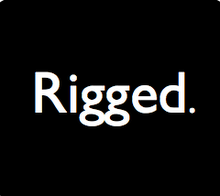| Online: | |
| Visits: | |
| Stories: |

| Story Views | |
| Now: | |
| Last Hour: | |
| Last 24 Hours: | |
| Total: | |
The Rigging Triangle Exposed: The JPMorgan-British Petroleum-Bank Of England Cartel Full Frontal

ZeroHedge
The name Dick Usher is familiar to regular readers: he was the head of spot foreign exchange for JPMorgan, and the bank’s alleged chief FX market manipulator, who waspromptly fired after it was revealed that JPM was the bank coordinating the biggest FX rigging scheme in history, as initially revealed in “Another JPMorganite Busted For “Bandits’ Club” Market Manipulation.” Subsequent revelations – which would have been impossible without the tremendous reporting of Bloomberg’s Liam Vaughan – showed that JPM was not alone: as recent legal actions confirmed, virtually every single bankwas also a keen FX rigging participant. However, the undisputed ringleader was always America’s largest bank, which would make sense: having a virtually unlimited balance sheet, JPM could outlast practically any margin call, and make money while its far smaller peers were closed out of trades… and existence.
But while the past year revealed that FX rigging was a just as pervasive, if not even more profitable industry for banks than the great Libor-fixing scandal (for details see “How To Rig FX Like A Pro “Bandit”, And Make Millions In The Process“), the conventional wisdom was that it involved almost exclusively bankers at the largest global banks including JPM, Goldman, Deutsche, Barclays, RBS, HSBC, and UBS.
Now, courtesy of some more brilliant reporting by Vaughan, we can finally link banks with the other two facets of what has emerged to be an unprecedented FX-rigging “triangle” cartel: private sector companies that have no direct banking operations yet who have intimate prop trading exposure, as well as central banks themselves.
By “banks” we, of course, refer to the ringleader itself: JP Morgan, and its former head of spot forex trading in London, Dick Usher. As for the company that benefited from its heretofore secret participation in the biggest FX rigging scandal in history, it is none other than British Petroleum.
We learn about all this thanks to a story that begins with, of all thing, a story about freshwater fishing at a lake in Essex called “Wharf Pool.”
As Bloomberg reports, “an hour away by train, in London’s financial district, the lake’s owners ply their trade. Wharf Pool was purchased for about 250,000 pounds ($388,000) in 2012 by Richard Usher, the former JPMorgan Chase & Co. trader at the center of a global investigation into corruption in the foreign-exchange market, and Andrew White, a currency trader at oil company BP Plc. ”
Read more at ZeroHedge:



